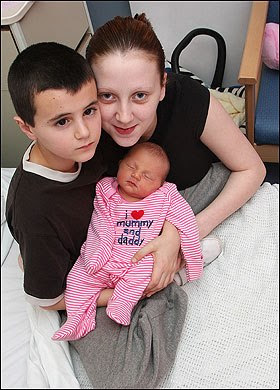How does one become a father at such a young age, and what are the long-term implications for both the child and the parent? This is not merely a question of biology but a complex intersection of societal norms, legal frameworks, and individual circumstances. In various parts of the world, cases have emerged where boys as young as 11 or 12 have become fathers, challenging conventional understandings of parenthood. These stories often spark debates about child welfare, consent, and the responsibilities that come with early fatherhood. The narratives of these young fathers highlight the stark realities faced by children thrust into adult roles far too soon.
Take, for instance, the case of Alfie Patten, who gained international attention in Britain for becoming a father at just 13 years old. While his story captured headlines, it also raised questions about the authenticity of claims surrounding his age. Similarly, an 11-year-old boy from Auckland, New Zealand, became a father in 2014, under circumstances that involved significant controversy due to the age gap between him and the mother, a 36-year-old neighbor. Such incidents underscore the complexities of relationships involving minors and the potential legal ramifications.
| Personal Information | Details |
|---|---|
| Name | Anonymized (Legal Protection) |
| Date of Birth | Not Disclosed |
| Age at Fatherhood | 11 Years Old |
| Place of Residence | Auckland, New Zealand |
| Occupation | Student |
| Current Status | Protected under Juvenile Laws |
| Reference Website | HuffPost UK Parents |
In another instance, a 12-year-old boy from Kerala, India, was identified as the youngest father following a DNA test that confirmed his paternity of a baby girl born to a 16-year-old relative. This case led to legal proceedings under the Protection of Children from Sexual Offences (POSCO) Act, highlighting the critical need for stringent laws to safeguard minors from exploitation. The boy’s arrest and subsequent juvenile proceedings reflect the delicate balance between holding individuals accountable and protecting their rights as children.
The phenomenon of young fatherhood extends beyond isolated incidents, revealing broader patterns in certain regions. Historical records indicate instances where young boys have assumed fatherhood roles, often within cultural contexts that normalized early marriage and reproduction. For example, Alex Liu, at just 12 years old, demonstrated remarkable resilience by completing the grueling Mohican MTB100k race alongside his father, Denny. While this achievement showcases physical endurance, it also invites reflection on the psychological preparedness of young individuals to handle life-altering events like fatherhood.
Examining these cases collectively reveals recurring themes: the absence of comprehensive sex education, inadequate legal protections, and societal pressures that perpetuate harmful practices. In some monarchies, historical records document instances of young royal heirs becoming fathers, sometimes necessitated by political alliances or succession requirements. However, modern perspectives emphasize the importance of ensuring that children remain children until they reach appropriate developmental milestones.
Returning to contemporary examples, consider the situation of an 11-year-old boy in New Zealand whose identity remains undisclosed to protect his privacy. His journey into fatherhood began amid contentious circumstances involving allegations of statutory rape against a much older woman. Despite initial charges being dropped, the case ignited discussions about the vulnerabilities faced by young boys in exploitative relationships. It also prompted calls for enhanced educational programs aimed at fostering awareness about consent and healthy relationships.
In conclusion, each story of a young father presents unique challenges and lessons. From Alfie Patten in Britain to the anonymous boy in New Zealand and the 12-year-old in Kerala, these accounts collectively underscore the necessity for robust policy measures addressing issues related to child protection, education reform, and social support systems. As societies continue evolving, prioritizing the well-being of all children—regardless of gender—must remain paramount.
| Related Information | Details |
|---|---|
| Youngest Fathers Recorded Globally | Alfie Patten (UK), Anonymous Boy (New Zealand), 12-Year-Old Boy (India) |
| Cultural Contexts | Varying norms regarding early marriage and reproduction across regions |
| Legal Frameworks | Differing laws governing consensual relationships and parental responsibility |
| Social Implications | Impact on mental health, educational opportunities, and future prospects |
| Support Systems | Availability of counseling services, financial assistance, and community resources |



